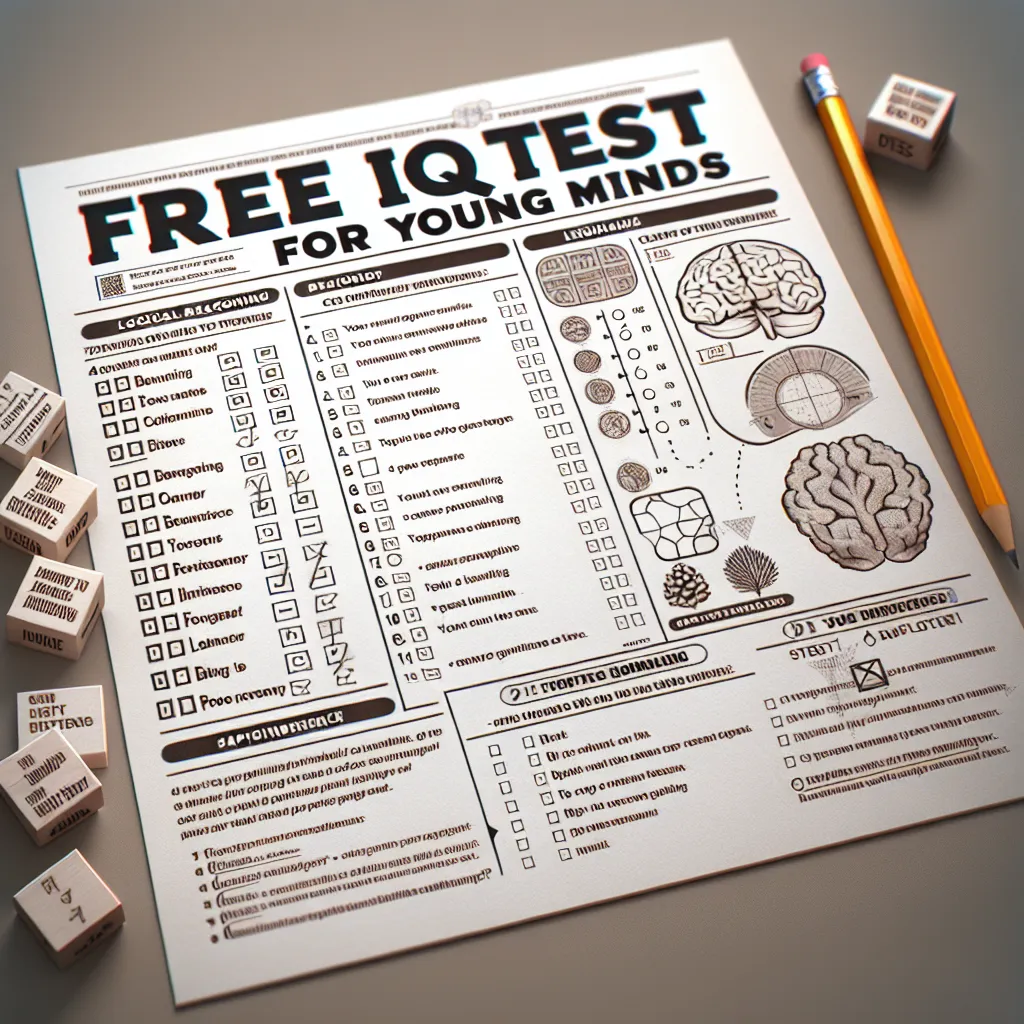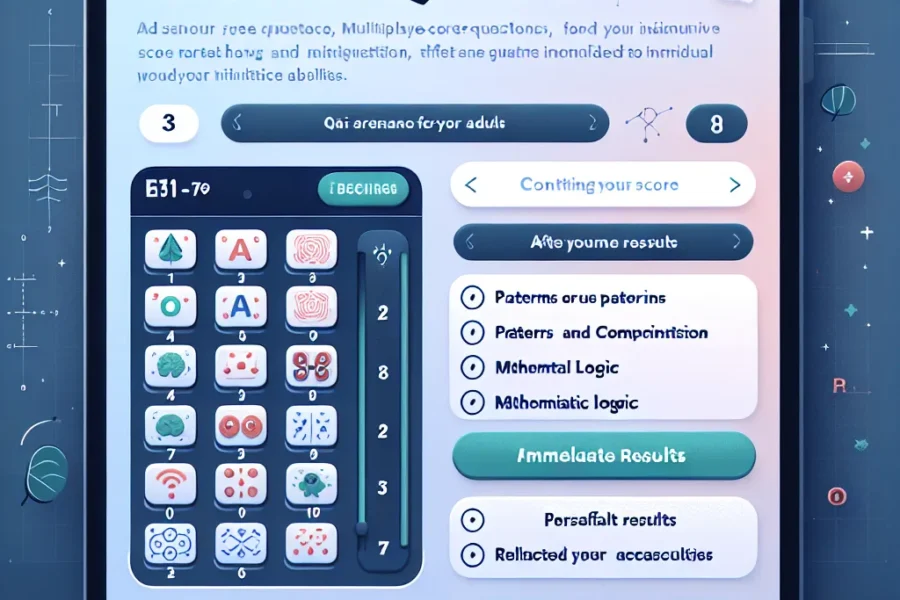If you’re a teenager or the parent of one, you might be looking for ways to better understand your strengths, abilities, and potential areas for growth. And while personality assessments can offer some insights, an IQ test specifically tailored for younger minds can be particularly enlightening. A good starting point is precisionpersonality.online, which provides an incredibly accurate and free personality test, offering insights into character traits and tendencies.
However, when it comes to gauging cognitive abilities, a free IQ test for teenagers can play a vital role. Tailored IQ tests are designed to measure a range of cognitive abilities, such as logical reasoning, problem-solving skills, and memory. These tests are specifically developed with the developmental stages of teenagers in mind, ensuring that the content is age-appropriate and relevant.
Why Is an IQ Test Important for Teenagers?
Cognitive development is at a peak during the teenage years. Understanding where a young person stands in terms of intellectual capabilities can help them in several ways. It can identify giftedness or unique capabilities that may not be apparent in day-to-day life or through academic grades alone. Importantly, it can also pinpoint areas where a teenager may benefit from additional support or challenge.
IQ tests can serve as a valuable benchmark for academic placement. They are often used by educators to make informed decisions regarding a student’s need for advanced programs, such as talented and gifted services. Beyond academics, understanding one’s IQ can bolster self-awareness and confidence, aids in setting realistic goals, and helps in career orientation.
Free Online IQ Tests for Teenagers
The internet offers a variety of free IQ tests that cater specifically to teenagers. These tests are typically structured to be completed within a set time frame and consist of a series of questions that measure different types of intelligence, including verbal, mathematical, and spatial abilities. When seeking a test, look for features such as:
– Age appropriateness: The content should be suitable for a teen’s level of understanding.
– Academic relevance: Questions should reflect concepts and ideas pertinent to a teenager’s world.
– Pacing: The test should allow for completion at a comfortable pace, but with enough challenge to be stimulating.
– Feedback: Results should offer insightful feedback that teens and parents can use going forward.
Understanding IQ Test Scores
Once a teenager has completed an IQ test, the results are usually presented as a score. The average score for any age group is set at 100, with the majority of people scoring between 85 and 115. Scores above this range may indicate higher-than-average intelligence, whereas scores below may suggest the need for academic support.
It’s important to approach IQ scores as one indicator of cognitive potential, not a definitive measure of a person’s worth or capabilities. Teenagers, in particular, are still developing, and their scores can fluctuate over time as they learn and grow.
Preparing for an IQ Test
Proper preparation can help teenagers perform at their best during an IQ test. Here are some tips for getting ready:
– Ensure adequate sleep: A good night’s sleep is essential for cognitive function.
– Eat a nutritious meal: A healthy meal before the test can improve focus and energy levels.
– Practice: Familiarity with the format of IQ questions can lead to improved performance. There are many practice questions available online.
– Stay calm: Test anxiety can affect outcomes, so practice relaxation techniques if nervous.
Benefits Beyond the Score
An IQ test does more than identify strengths and weaknesses—it can also enhance cognitive abilities. The process of taking an IQ test can teach teenagers valuable skills, such as time management, problem-solving, and strategic thinking.
Moreover, IQ testing can be a bonding experience for parents and teens. Working together to understand test results and make plans for the future based on those results can deepen mutual understanding and communication.
Limitations and Considerations
While IQ tests can provide beneficial insights, they are not without limitations. It’s crucial to understand that these tests do not measure creativity, emotional intelligence, or other forms of practical intelligence. They’re also not predictive of success in life, as success is multifaceted and influenced by a variety of factors, including personality, emotional resilience, and social skills.
Some teenagers might feel pressure or stress about taking an IQ test, fearing that a low score might define them. It’s essential for parents and educators to reinforce that an IQ score is just one aspect of their overall profile and should be considered alongside a wide array of talents and abilities.
Finding the Right Free IQ Test for Teenagers
When seeking out free online IQ tests for teenagers, aim for reputable sources to ensure that the testing experience is both safe and rewarding. Look for tests that are backed by educational or psychological experts, offering accurate results and constructive feedback without hidden costs or unnecessary data collection.
Summing It Up
IQ tests for teenagers are a valuable tool for gaining insight into cognitive aptitude, and free online options make them accessible to everyone. By identifying both strengths and areas for growth, these tests can help young individuals and their parents make informed decisions about education and future planning. Remember, an IQ test is just the beginning of understanding a teen’s unique capabilities, and it should always be used positively and constructively. As teenagers continue to learn and evolve, so too can their intellectual skills develop—making free IQ testing a worthwhile consideration for any family.



Leave a Comment